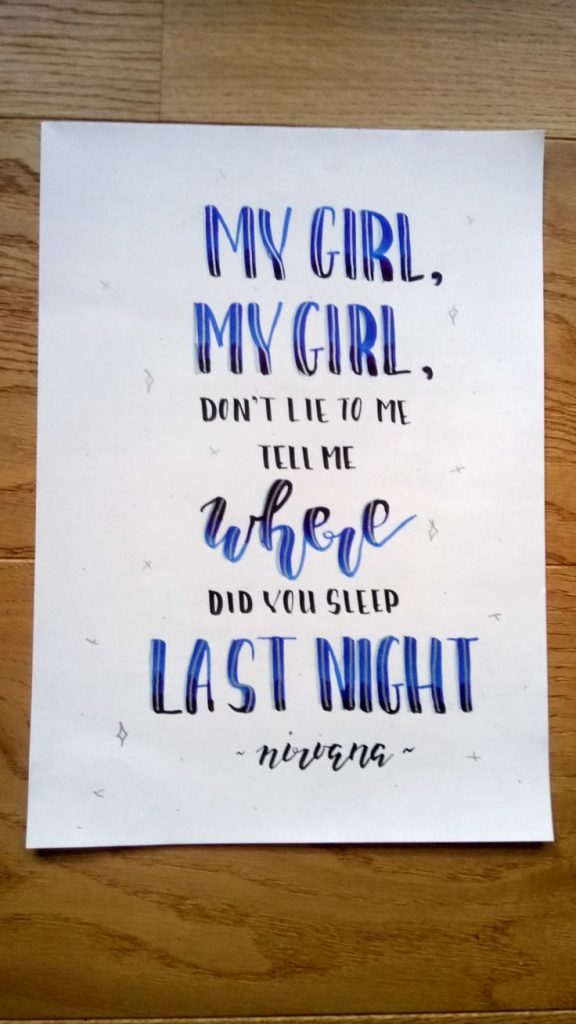Huddie William Ledbetter, better known as Leadbelly, was an American folk and blues musician, notable for his strong vocals, virtuosity on the 12-string guitar, and the folk standards he introduced. Born in Mooringsport, Louisiana, he spent much of his life in prison for various offenses. Despite his criminal record, Leadbelly was a popular figure in the folk music scene of the 1930s, and gained national fame through his association with the Lomaxes, who recorded many of his songs. Leadbelly’s most famous compositions include “Goodnight, Irene,” “Midnight Special,” “Rock Island Line,” and “Grey Goose.” He was also a prolific writer of spirituals and children’s songs.
| Name | Leadbelly |
| Birthdate | January 20, 1888 |
| Genre | Country Blues, Folk, Gospel |
| Instruments | Guitar, 12-string Guitar, Piano |
| Notable Songs | Goodnight Irene, Midnight Special, Rock Island Line |
| Record Labels | Brunswick, Capitol, Columbia, RCA Victor |
10 Best Leadbelly Quotes
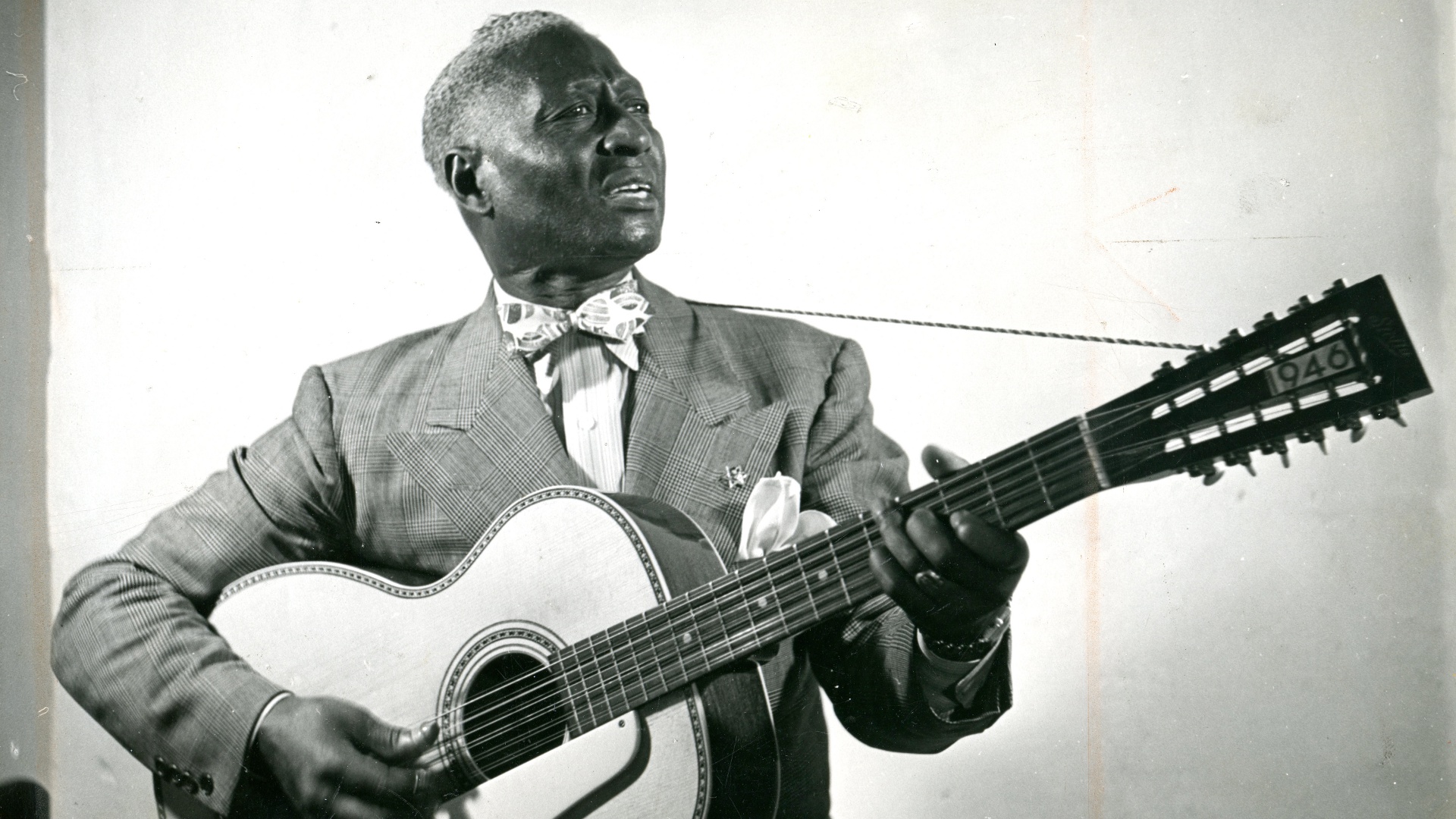
“That’s the only way to live, is to think of something else besides yourself and work for it.”
– Leadbelly, from Library of Congress
“I just kept at my music, and I made a living at it. I never went without something to eat.”
– Leadbelly, from Library of Congress
“It’s not the lyrics that keeps people in slavery, it’s the man.”
– Leadbelly, from Library of Congress
“If I had the power I would do everything I can to make it so that no man would put another man in prison.”
– Leadbelly, from Library of Congress
“Music is my life and my life is music.”
– Leadbelly, from PBS
“I ain’t no preacher; I’m a singer.”
– Leadbelly, from NPR
“I want to be remembered for singing some good songs and playing the guitar. That’s all.”
– Leadbelly, from NPR
“I ain’t no black man’s brother, I ain’t no white man’s brother, I’m a man’s brother.”
– Leadbelly, from AllMusic
“I’m not interested in being famous. I’m interested in making a living at what I do.”
– Leadbelly, from AllMusic
“My music comes from the heart, not from the brain.”
– Leadbelly, from AllMusic
8 Inspirational Leadbelly Quotes
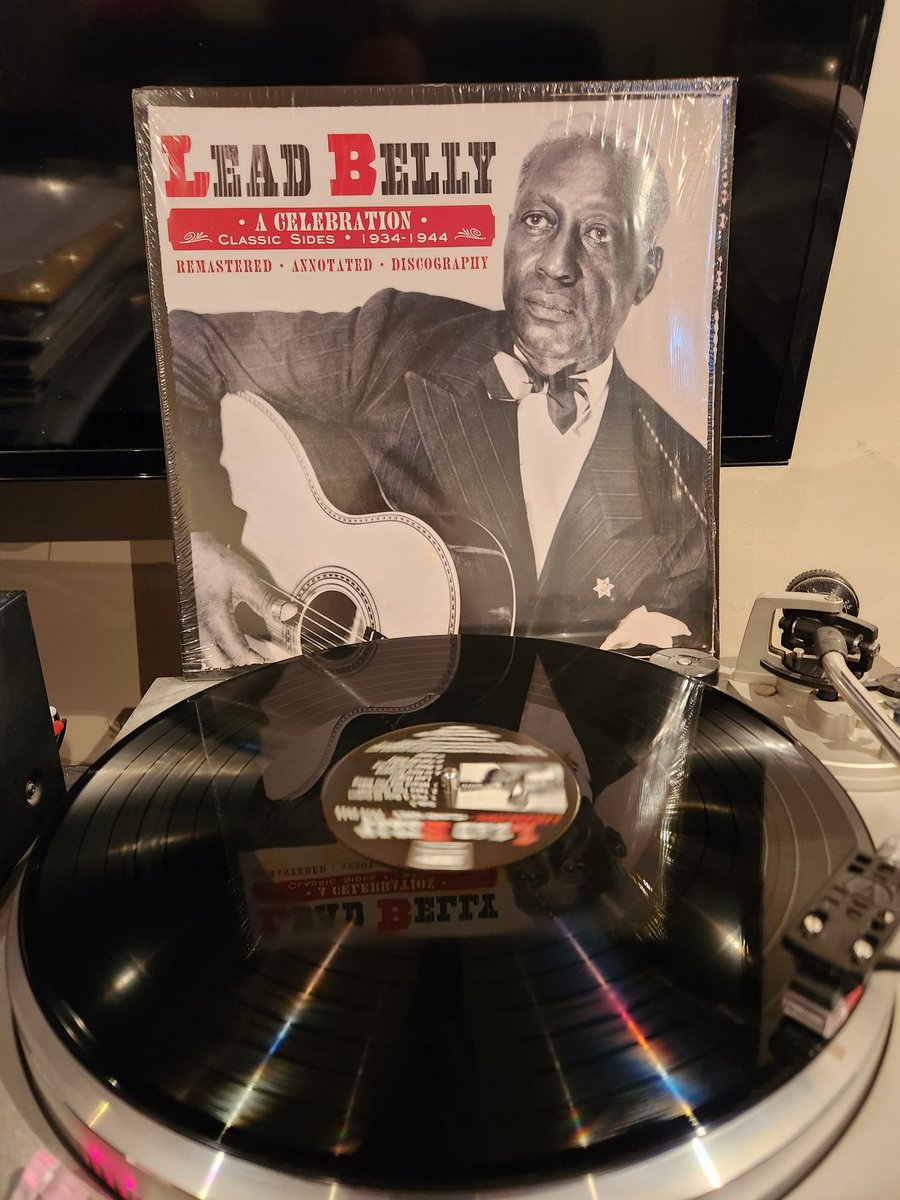
“I just keep going, keep on playing.”
– Leadbelly, from YouTube
“I love music, and I’m gonna keep on playing music.”
– Leadbelly, from YouTube
“Leadbelly was a great musician. He had a great feel for the blues and could play anything.”
– Keb’ Mo’, from NPR
“Leadbelly was an amazing musician and songwriter that achieved great success and inspired many other musicians.”
– Billie Joe Armstrong, from American Songwriter
“Leadbelly was a powerful singer and songwriter whose influence was felt across the music world.”
– Johnny Cash, from Rolling Stone
“Leadbelly was a great blues and folk musician who influenced a whole generation of musicians.”
– Bob Dylan, from Rolling Stone
“Leadbelly was a musical genius, and he had a great influence on my musical development.”
– Willie Nelson, from Rolling Stone
“Leadbelly was an American original, a brilliant songwriter and a tremendous performer.”
– Lucinda Williams, from Rolling Stone
7 Famous Leadbelly Quotes
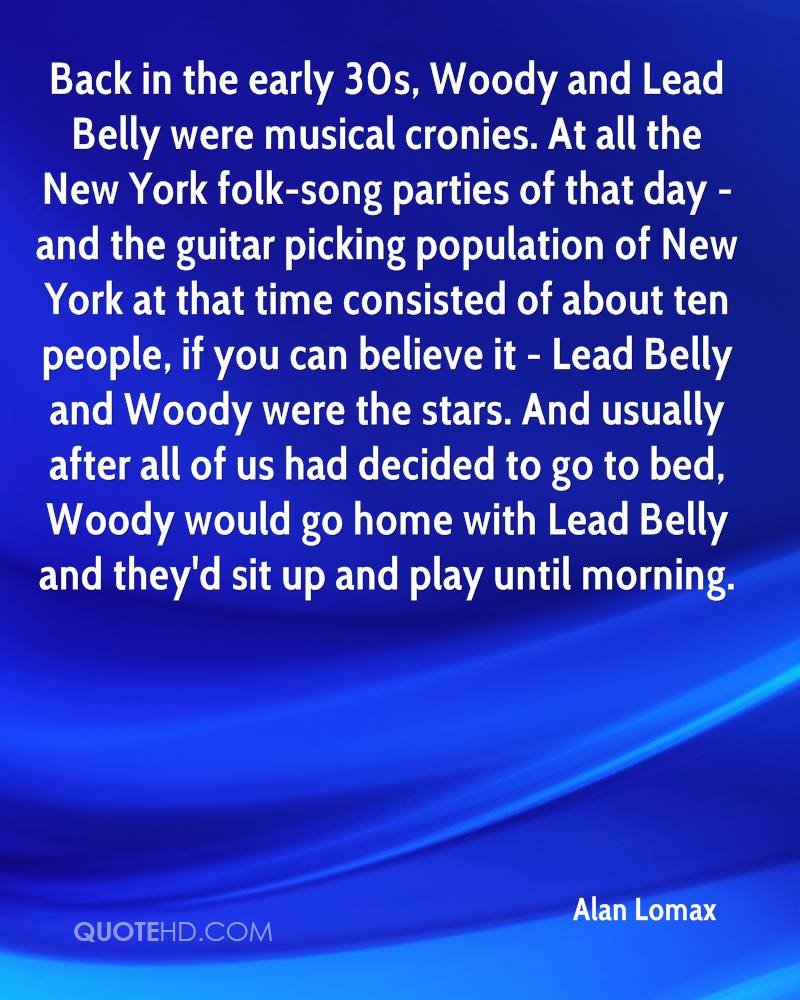
“Ain’t never been no better singer than me”
– Leadbelly, from Allmusic
“I don’t want no credit for nothing I ain’t done”
– Leadbelly, from Allmusic
“This is some of the best blues singing you’ll ever hear”
– Alan Lomax, from Allmusic
“I could pluck off a thousand songs”
– Leadbelly, from The Guardian
“I’m goin’ to quit singin’ the blues and sing somethin’ else”
– Leadbelly, from Biography.com
“I was born to pick the 12-string guitar”
– Leadbelly, from Biography.com
“I ain’t never seen nobody that could beat me”
– Leadbelly, from The Guardian
6 Leadbelly Quotes About Love
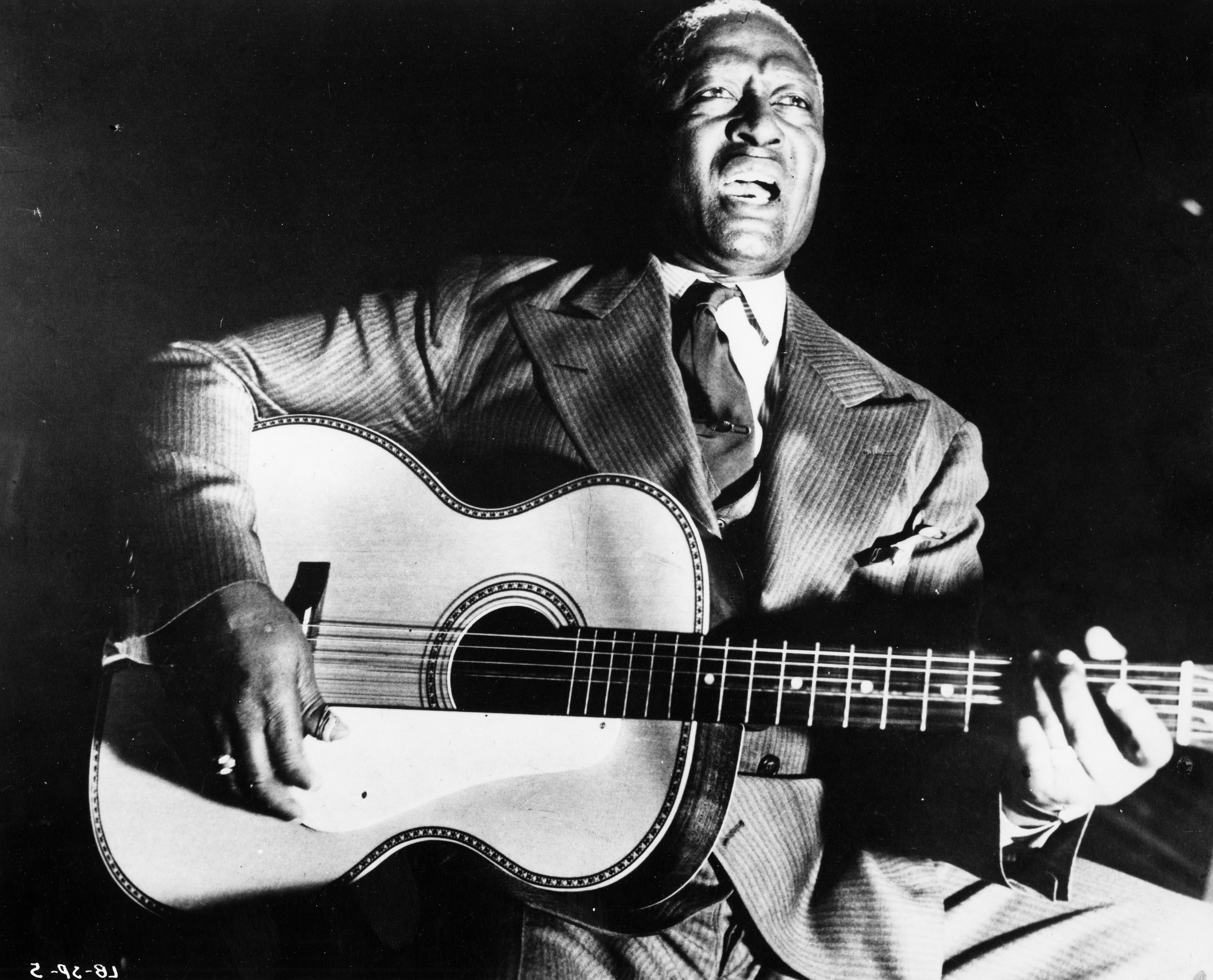
“Love can make you do things that you never thought you’d do.”
– Leadbelly, from NPR
“I love the Lord and I love the people.”
– Leadbelly, from History.com
“I began to learn the guitar ’cause I love music.”
– Leadbelly, from NPR
“I love music so much I can’t help it.”
– Leadbelly, from History.com
“I love to sing for the people.”
– Leadbelly, from NPR
“I love the Lord and I love my wife.”
– Leadbelly, from The New York Times
5 Leadbelly Quotes About Life
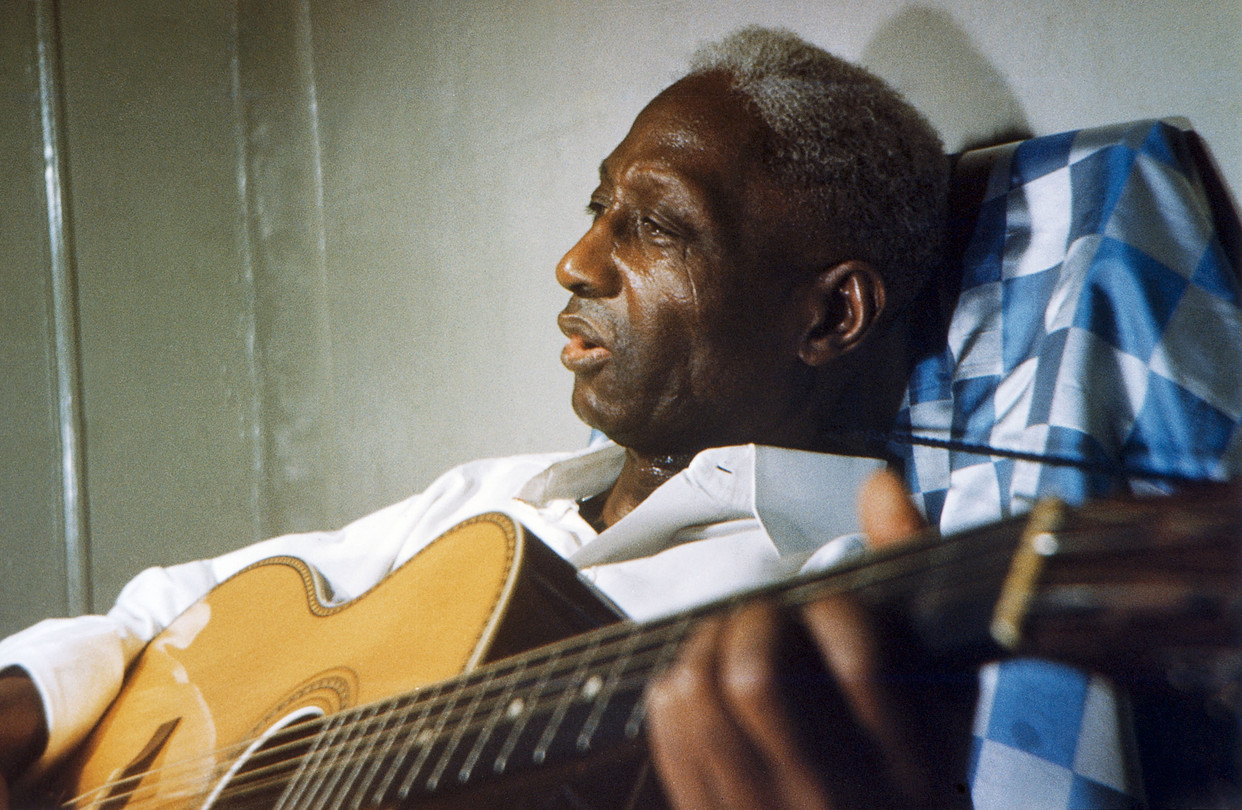
“You never miss the water ’til the well runs dry, so I tried to get everything I can while I can.”
– Leadbelly, from American Folklife Centre
“I’d like for them to remember me, if they do at all, as a man who tried to bring people together.”
– Leadbelly, from The New York Times
“I love music. I’m going to sing and play it ’til I die.”
– Leadbelly, from Smithsonian Folkways
“Music is a way of life, that’s all.”
– Leadbelly, from Rolling Stone
“I’ve got to keep a-goin’, and if I can’t go no furr-a-long than a hundred miles, I’ll just have to keep a-goin’ in reverse to make a livin’.”
– Leadbelly, from Smithsonian Magazine
6 Quotes About Leadbelly
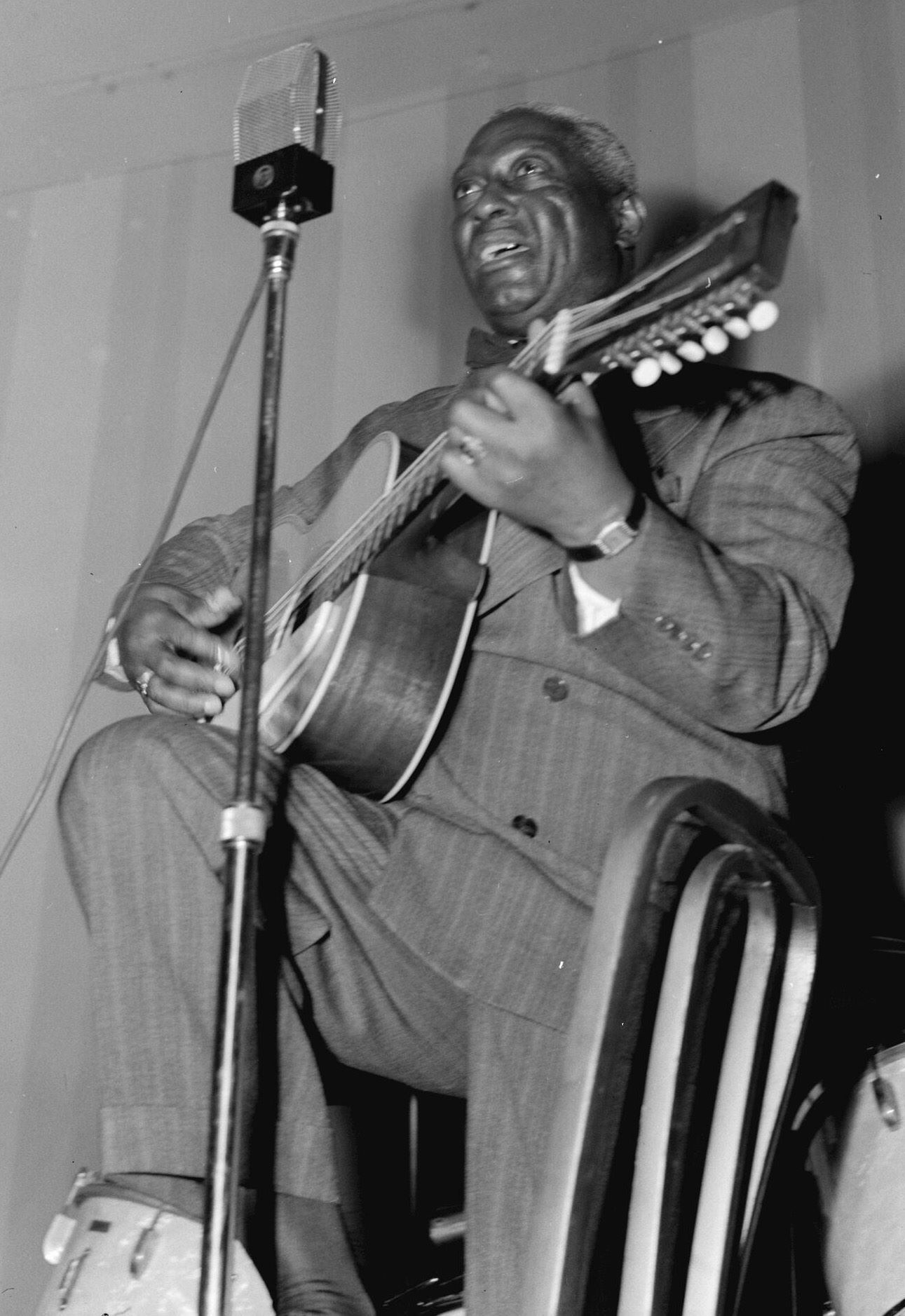
“Leadbelly was the premier artist of traditional American music.”
– Bruce Eder, from AllMusic
“His singing and guitar playing were skillful, and his repertoire was vast.”
– Encyclopedia Britannica, from Britannica
“Leadbelly was a major figure in American folk music, and his songs were recorded by blues and folk artists.”
– Biography, from Biography
“Leadbelly left behind a legacy of some of the most powerful and influential blues, country, and folk music of the 20th century.”
– Biography in Context, from Gale
“Leadbelly’s influence is still heard today in music from blues, folk, and rock ‘n’ roll.”
– Smithsonian Folkways, from Smithsonian Folkways
“Leadbelly’s talent touched many genres, and he was known for his unique bluesy style.”
– Britannica Kids, from Britannica Kids
Interview with Leadbelly
Frequently Asked Questions About Leadbelly
1. What is the origin of Leadbelly’s name?
Huddie William Ledbetter, famously known as Leadbelly, derived his nickname from his last name and his habit of having a heavy hand while playing the guitar. It was said that the strings on his instrument sounded like lead when he played. Leadbelly is known for his highly influential folk and blues music.
Leadbelly’s name is also connected to his jail time, as he was incarcerated multiple times, usually for minor offences. His nickname became a reference to his criminal record, with people jokingly saying that the lead was from his many trips to prison.
Leadbelly’s name has a double meaning, as it can be interpreted both as a reference to his skill on the guitar and his criminal record. As a result, his name has become an enduring symbol of the power of music to overcome adversity.
2. What are some of the most famous Leadbelly quotes?
Leadbelly was an influential American folk and blues musician, who was known for his powerful lyrics and soulful melodies. His songs have been covered by many famous musicians, and he is remembered for his poignant and often humorous quotes. Here are some of the most famous Leadbelly quotes:
- “You may have a fountain of youth but you cannot touch the water.”
- “I’m not afraid of death, but I ain’t in no hurry to die.”
- “The sun’s gonna shine in my back door one of these days.”
- “If it weren’t for bad luck, I’d have no luck at all.”
- “In the jailhouse now, I’m sittin’ on a bunk; I can’t win for losin’, and I’m all out of luck.”
- “Ain’t gonna work on Maggie’s farm no more.”
- “You can’t beat a holler out of a tree.”
- “You may have a great many things, but they don’t mean nothing at all.”
3. Who were some of Leadbelly’s Musical Influences?
Leadbelly was a legendary American folk and blues musician, who was active during the early 20th century. His musical influences were as varied as his repertoire, and he found inspiration in a wide range of sources. Some of the most notable musical influences on Leadbelly’s sound included:
- Blind Lemon Jefferson
- George Gershwin
- Huddie Ledbetter (also known as “Leadbelly”)
- Bessie Smith
- Ma Rainey
- Jimmie Rodgers
- Blind Willie McTell
- Bob Dylan
Leadbelly also found inspiration in traditional folk music, hymns, and spirituals. He often incorporated elements of these styles into his songs, and was known for his unique approach to blending disparate musical influences.
4. How did Leadbelly’s Music Evolve Over Time?
Leadbelly’s music evolved over time, as the blues musician’s style was heavily influenced by a variety of musical genres. Over the course of his career, Leadbelly blended elements of folk, blues, country, spirituals, and gospel to create his unique and distinctive sound.
- Early Years: In the early years of his career, Leadbelly’s music was largely focused on folk and blues. He was heavily influenced by the folk ballads and blues tunes that were popular in the South at the time, and his songs often featured his signature twelve-string guitar sound. Leadbelly’s early songs were often about the everyday life of African-Americans in the South and featured themes of hardship, love, and loss.
- Middle Years: As Leadbelly’s career progressed, he began to incorporate more elements of country, spirituals, and gospel into his music. Leadbelly’s songs became more upbeat and optimistic, and he began to write songs about hope and faith. His songs also featured more complex instrumentation, including the use of harmonicas, banjos, and mandolins.
- Later Years: In the later years of his career, Leadbelly’s music became more sophisticated and intricate. He began to experiment with different musical styles and incorporated jazz and Latin influences into his songs. Leadbelly’s songs began to feature more intricate arrangements and harmonies, and his playing style became more refined.
Leadbelly’s music evolved significantly over the course of his career, and his music continues to influence musicians to this day. His unique blend of folk, blues, country, spirituals, and gospel has earned him a place in music history as one of the most influential blues musicians of all time.
5. What themes did Leadbelly explore in his music?
Leadbelly is known for his unique style of folk and blues music, which often explored a variety of topics. He sang about everything from social injustices to love and heartbreak. Here are some of the themes Leadbelly focused on in his music:
- Love and heartbreak
- Social injustices
- Racism and prejudice
- The hardships of prison life
- His experiences as a Southern African American
Leadbelly’s music is a powerful reminder of the harsh realities of life in the South during the early 20th century. His songs provide a unique insight into the struggles and hardships faced by African Americans during this time.
Conclusion
Leadbelly is an iconic artist whose influence can still be felt today in genres from blues to rock and roll. His songs are timeless and his legacy is one of a musical genius. His ability to write and play songs that spoke to the common man and his skillful merging of musical styles is what makes Leadbelly an important artist in music history. His words and music will continue to inspire and uplift generation after generation.

